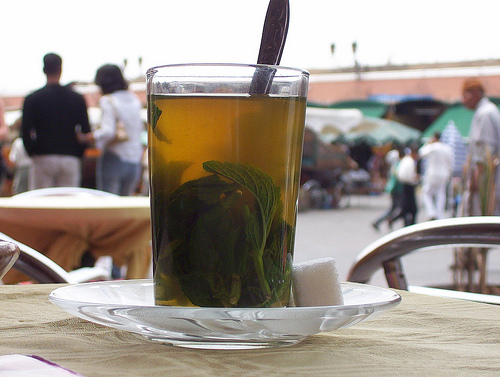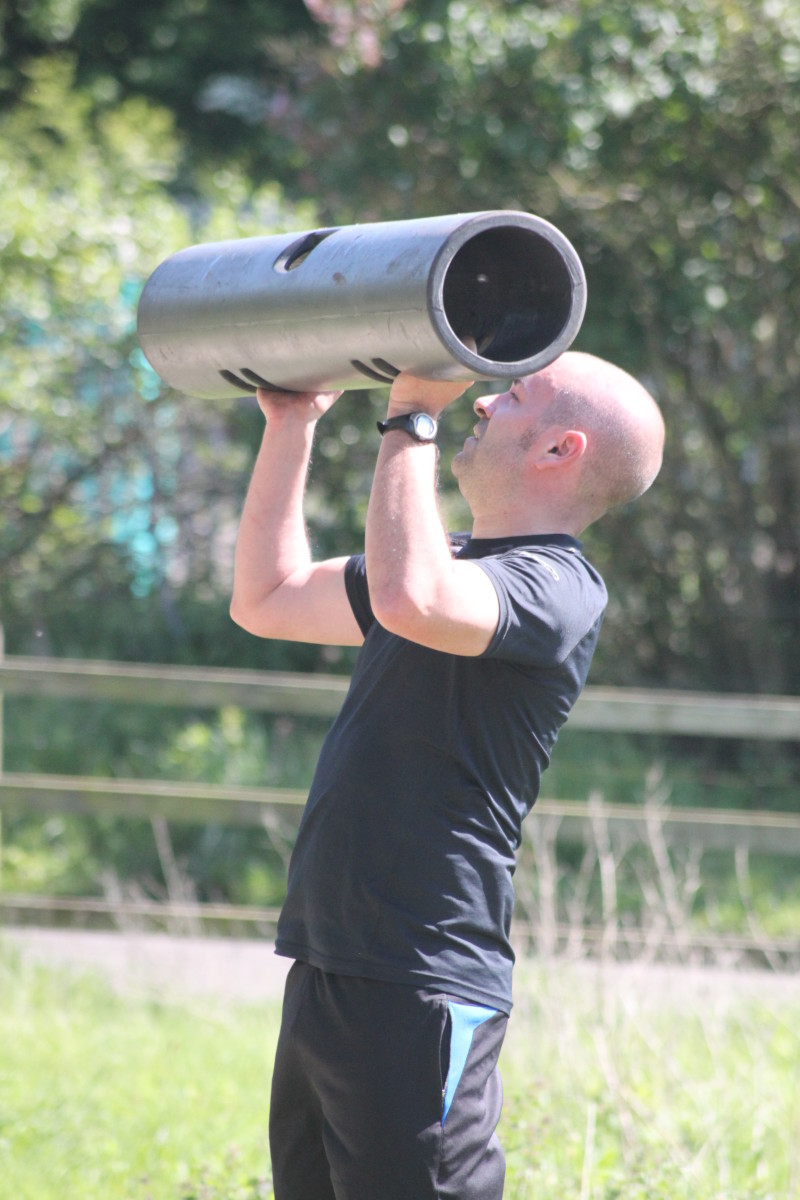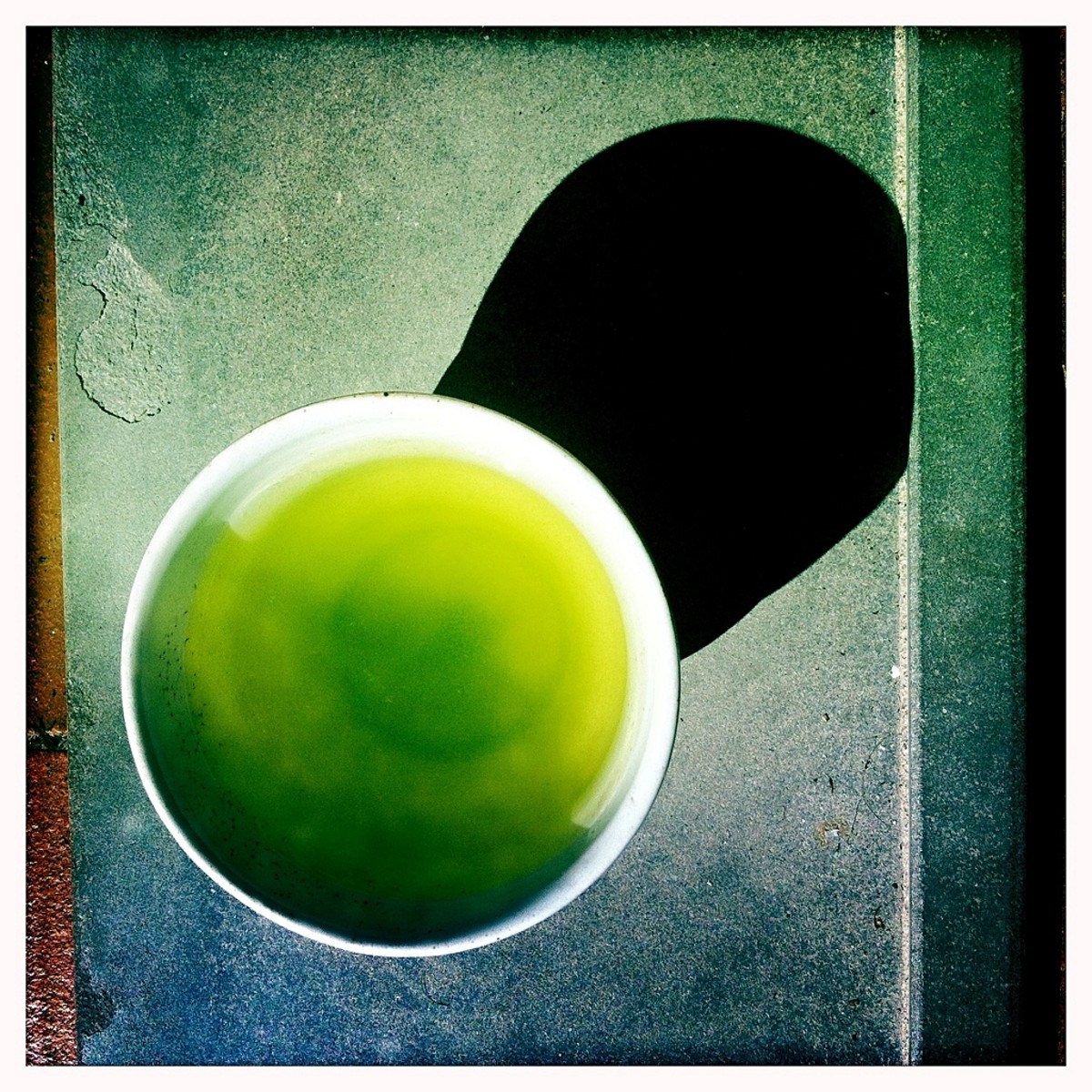Can Green Tea Improve Endurance Sports Performance?
Can green tea benefit more than your general health?
Green tea is gaining in popularity in the Western world although is very popular throughout Asia and the Middle East. Whether you’re being served green tea with mint on Marrakesh’s Djemaa el Fnaa, by a Sri Lankan beach or sipping sencha green tea in a sushi restaurant green tea can have a powerfully positive effect on your health. Three to four cups a day have been shown to have amazing health benefits.
Green tea can help weight loss, your heart and improve your nerves. But can it improve endurance sports performance?
Drinking green tea in Marrakesh, Morocco

Green tea nutritional facts
Green Tea- Facts
|
|---|
A cup of green tea has 0 calories
|
A cup of green tea is 99.5% water so great for hydration
|
It's a great source of vitamins including vitamins A, D, E, C, B, B5, H and K.
|
Green tea contains epigallocatechin-3-gallate- A powerful antioxidant
|
Green tea contains caffeine (Typically 3 mg to 30 mg per cup) at levels well below a standard cup of brewed coffee
|
Based on information obtained from http://www.greenteanutritionfacts.com/
What makes green tea special?
Green tea and Green Tea Extract (GTE) are rich in catechin, a polyphenolic antioxidant. GTE is extremely popular in weight loss supplements due to it’s polyphenol (Catechin) and flavanol antioxidant content. Tea leaves contain Theanine, a water-soluble amino-acid which is converted to catechin's in the presence of sunlight.
Catechins found in green tea extract
- Epicatechin (EC)
- Epigallocatechin (ECG)
- Epigallocatechin gallate (EGCG)
The catechins are powerful antioxidants, far more potent than vitamins c and e in their effect. These antioxidants have powerful cancer fighting qualities whilst also protecting against the risk of heart disease.
Green tea extract has been shown to have a mildly thermogenic effect which can be of benefit to athletes looking for an effective weight loss supplement on top of diet and exercise to maximise fat loss.
Polyphenols have also been shown to block bad cholesterol type (LDL) oxidation.
Health benefits of green tea for sports people and the general population
While the potential effects of green tea are being scientifically investigated the following have been likely health benefits of green tea which could help endurance athletes as well as members of the general population. Sports people don't always lead the healthiest of lifestyles and therefore green tea can help with general health as well as sporting performances.
- Improved mental alertness. The caffeine content of a typical cup of green tea can help by increasing mental alertness and an athlete's cognitive ability when drank in moderation
- Improved cholesterol levels. Green tea can help to reduce already elevated levels of the bad 'LDL' type of cholesterol as well as total cholesterol levels and triglycerides. It can also increase the good 'HDL' levels in in the bloodstream.
- Green tea has a positive effect on blood pressure in the elderly. Likely due to the caffeine content of green tea.
- Green tea can reduce Parkinson's disease onset and risks
- Positive effects on fighting cancers of the bladder, oesophagus, ovaries and pancreas through its powerful antioxidant effects. Some benefits have been found in fighting breast cancer although this has only been seen in a small number of studies and is therefore not considered conclusive.
- Weight loss- please see further detailed information below.
Could green tea help you keep going and battle fatigue?

Green tea, weight loss and hormonal regulation in the obese
One of the key ways that green tea consumption can improve the quality of life of persons affected by obesity is through improved maintenance of their hormonal balance.
There is evidence that green tea induced thermogenesis can help in cases of obesity by normalisation of deficiencies in the release of adrenaline and noradrenaline which have a significant effect on the body's energy substrate utilization by switching from predominantly carbohydrate oxygenation at rest to using more of the body's lipid stores.
Green tea can enhance weight loss in obese exercisers.
In a study of 123 overweight and obese adults, Maki et all (2009) featuring three hours a week of moderate intensity exercise and a controlled energy intake or a 12 week period it was found that subjects taking green tea extract as a supplement to their diet significantly increased their rate of abdominal fat loss compared to control groups.
Excess body weight can hold your cycling back on climbs

Green tea can make you lighter for cycling in the mountains
The thermogenic effect of green tea can have great benefit to your long term weight loss. A number of scientific studies have looked upon the effects of drinking green tea with its high levels of catechins and caffeine in its effects on weight loss. Many of these studies have shown a thermogenic effect which can lead to an increase in calories burnt by the body at rest by relieving inhibition at different control points along the NA-cAMP axis. (Dulloo et all, 2000)
How much of a thermogenic effect does green tea cause?
A number of websites seem to quote that 3-4 cups of green tea per day which is a figure quoted previously by Takatoshi Murase who is quoted as stating
"We estimate that an athlete weighing 75 kilograms (165 pounds) would have to drink about four cups (0.8 liter) of green tea daily to match the effect in our experiments." Murase et al. 2005.
Green tea can increase fat oxidation during cycling
Whilst many studies on the effectiveness of green tea have been on mice or overweight adults there have been minimal studies so fat into it's effect on endurance performance. Caffeine, one of it's contents has been greatly shown to enhance exercise to exhaustion and increased oxidisation of fat stores instead of glycogen stores however minimal research has been performed thus far into the combined effects of green tea on endurance performance.
It has been found that acute green tea extract ingestion can increase fat oxidation during moderate-intensity exercise by up to 17% whilst improving insulin sensitivity and glucose tolerance in healthy young men.(Venables et al, 2008)
Contra-indications of drinking green tea
While green tea can lead to some improvements in athlete performance its not suitable for all. Due to some of it's negative properties it is not recommended for the following groups.
- Pregnant women
- Breastfeeding women
- Persons suffering from insomnia due to the high caffeine content affecting potential sleep quality.
- Anyone with ulcer problems
- Green tea inhibits iron assimilation and is not recommended for anaemics
- Anyone with heart issues.
References
Dulloo AG, Seydoux J, Girardier L, Chantre P, Vandermander J.. (2000) Green tea and thermogenesis: interactions between catechin-polyphenols, caffeine and sympathetic activity. International Journal of Obesity Related Metabolic Disorders. Feb;24(2):252-8.
Green, Eric D., (2010). The Effect of Green Tea Extract on Endurance Performance in Young Adults. Nutrition Theses. Paper 29.
Maki KC, Reeves MS, Farmer M, Yasunaga K, Matsuo N,Katsuragi Y, Komikado M, Tokimitsu I, Wilder D, Jones F, Blumberg JB, Cartwright Y. (2009) Green tea catechin consumption enhances exercise-induced abdominal fat loss in overweight and obese adults. Journal of Nutrition. Feb;139(2):264-70
Murase T, Haramizu S, Shimotoyodome A, Nagasawa A, Tokimitsu I. (2005) Green tea extract improves endurance capacity and increases muscle lipid oxidation in mice. American Journal of Physiology, Regulatory, Integrative and Comparative Physiology. Mar;288(3):R708-15
Murase T, Haramizu S, Shimotoyodome A, Tokimitsu I, Hase T. (2006) Green tea extract improves running endurance in mice by stimulating lipid utilization during exercise. American Journal of Physiology, Regulatory, Integrative and Comparative Physiology. Jun;290(6):R1550-6.
Venables MC, Hulston CJ, Cox HR, Jeukendrup AE. (2008) Green tea extract ingestion, fat oxidation, and glucose tolerance in healthy humans. American Journal of Clinical Nutrition. Mar;87(3):778-84.








